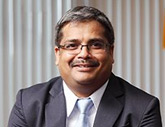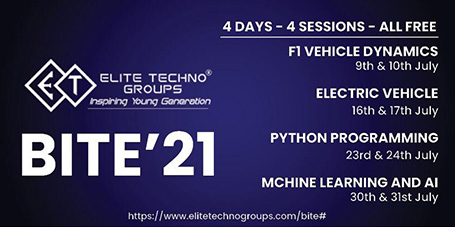|
|
Smartwatches, CCTV cameras come under government scanner over quality standards
 The ministry of electronics has placed smart watches and CCTV cameras under its scanner in a bid to stem the flow of sub-standard and unsafe electronic goods into India. The ministry of electronics and information technology (Meity) has placed smart watches and CCTV cameras under its scanner in a bid to stem the flow of sub-standard and unsafe electronic goods into India. The ministry of electronics has placed smart watches and CCTV cameras under its scanner in a bid to stem the flow of sub-standard and unsafe electronic goods into India. The ministry of electronics and information technology (Meity) has placed smart watches and CCTV cameras under its scanner in a bid to stem the flow of sub-standard and unsafe electronic goods into India.
On 17 August, Meity added 13 electronic items, including smart watches and CCTV cameras, to the Electronics and Information Technology Goods (Requirement for Compulsory Registration) Order, 2012, which means these will now have to meet standards as notified by the government and companies will not be allowed to import or sell any non-compliant product in the country.
The other products—LED flood lights, LED lighting chains, Plasma/LCD/LED television of screen size up to 32 inches, CCTV recorders, USB driven barcode readers, barcode scanners, iris scanners, and optical fingerprint scanners—have been brought under the ambit of Compulsory Registration Order (CRO), a government official confirmed.
The provisions of the 17 August order will be applicable to these devices after February 2018.In August, the ministry had asked 35 smartphone makers, mostly Chinese, and Alibaba-owned UC Browser to furnish details on data security. On 31 August, Mint reported that Meity is working to tighten quality standards to prevent the sale of spurious electronic goods and block data breaches in India.
The industry, however, sees flaws in this decision. An expert believes that the CRO should focus on safety of products that pose the greatest risk to consumers. This in turn would impact the ease of doing business in India.
“Companies are still struggling with delays in the CRO approval process resulting from bottlenecks at test labs. The addition of visual display units and video monitors with a screen size up to 32 inches alone would include over 200 separate models with multiple SKUs (stock keeping units). With India’s labs lacking the capacity to perform testing of this magnitude in a timely manner, there will be further delays in getting these essential products approved and into the hands of consumers,” said Joshua Rosenberg, director, global policy, Information Technology Industry Council (ITI), an advocacy and policy organization, in an emailed response.
CRO is the first regulation in India in the electronics sector. It was notified in 2012 under the Bureau of Indian Standards (BIS) Act. Fifteen electronic items were notified on 3 October 2012, and another 15 were notified on 13 November, 2014. Some products that are already under the ambit of CRO include mobile phones, laptops, notebooks, tablets, printers, electronic clocks, telephone answering machines, video games, wireless keyboards, set top box, and microwave ovens.
However, adding these products to the CRO is likely to result in delays in bringing both existing and future products to the market, said Rosenberg, adding that “meeting product launch timelines, as with all aspects of doing business, depends on having predictable and certain regulatory processes in the markets in which you sell.”
There are three nodal authorities for implementation of CRO—Meity for registration and monitoring of compliance; BIS for action on non-compliant goods; and customs for ensuring compliance of imported goods to CRO. (Source: Mint)
|
SAP’s Khandelwal elevated to global role
 German software behemoth SAP has elevated Dilipkumar Khandelwal as president of its HANA Enterprise Cloud, its private cloud offering that supports HANA applications, as also non-SAP ones. Khandelwal will also continue in his current role as the managing director of SAP Labs India responsible for development centres in Bengaluru, Gurugram and Pune with an employee base of 7,300 people. SAP Labs India is the firm's largest research and development centre outside its headquarters in Germany and a part of a connected lab network of 19 Labs in 16 countries. German software behemoth SAP has elevated Dilipkumar Khandelwal as president of its HANA Enterprise Cloud, its private cloud offering that supports HANA applications, as also non-SAP ones. Khandelwal will also continue in his current role as the managing director of SAP Labs India responsible for development centres in Bengaluru, Gurugram and Pune with an employee base of 7,300 people. SAP Labs India is the firm's largest research and development centre outside its headquarters in Germany and a part of a connected lab network of 19 Labs in 16 countries.
Khandelwal elevation to a global role is testimony once again to the value Indian leaders bring in frontline technology. His predecessor in SAP Labs India, V R Ferose, became the senior vice president and head of globalization services at SAP. Khandewal will report to Bernd Leukert, member of the executive board, in charge of products & innovation. "Dilip will have a global responsibility for the deployment of SAP HANA Enterprise Cloud and will oversee its adoption and customer success," the company said in a statement.
SAP HANA Enterprise Cloud delivers comprehensive cloud infrastructure and managed services for SAP's in-memory applications, database, and platform. In the recent June quarter analysts' call, SAP CEO Bill McDermott called out S/4HANA as the fastest growing cloud ERP solution in the market and said SAP is growing new cloud bookings at triple digits. The quarter marked the 17th consecutive quarter of consistent rapid growth in the cloud for SAP. S/4HANA also connects enterprises to the internet of things and big data.
Khandelwal said his focus would be to use "our unparalleled cloud expertise to drive the digital transformation of our customers." Khandelwal has been with SAP for over 16 years and has held leadership positions across SAP's technology and business portfolios. As managing director of SAP Labs India, he has been instrumental in driving innovation through the product lines and establishing SAP Labs India as a leading centre of innovation across SAP's R&D ecosystem. (Source: Times of India)
|
Apple to launch iPhone 8, 8 Plus in India at 6 pm on September 29
 Ahead of a crucial meeting of trade ministers of key developed and developing countries in October, a government think tank has cautioned India against including ecommerce disciplines in multilateral trade fora as they will have implications on flagship programmes including Digital India, Startup India and Smart Cities. Besides, they will affect policies on open source software, open standards for e-governance, cloud services and cyber security. Ahead of a crucial meeting of trade ministers of key developed and developing countries in October, a government think tank has cautioned India against including ecommerce disciplines in multilateral trade fora as they will have implications on flagship programmes including Digital India, Startup India and Smart Cities. Besides, they will affect policies on open source software, open standards for e-governance, cloud services and cyber security.
Apple is advancing the time of its India launch for the iPhone 8 and iPhone 8 Plus to 6 pm on September 29 to ensure the widest possible sales window, moving away from its practice of starting the sale of new devices at midnight or late evening as in the past two years. India will get the new phones a week after they go on sale in the US. The company is working to ensure the new iPhones, watch and Apple TV are available on September 29 in India at more than 10,000 retailers, making it the company’s biggest launch in India, said two senior industry executives. They said Apple is targeting over 50 per cent growth in sales in the launch period over last year.
The executives said Apple will roll out an advertising campaign covering airport, digital, radio and print to build the buzz starting with digital on its website, Facebook, Twitter and Instagram from September 18. The consumer launch event will take place in leading malls on September 29 in nine cities including the National Capital Region, Mumbai, Bengaluru, Kolkata, Chennai, Pune and Hyderabad, they said.
Pre-bookings will start on September 22 in India and there will be a special launch day cashback offer for consumers using Citibank cards that will ensure India pricing matches that in the US, the executives said. This includes a cashback ofRs 10,000 on the new iPhone 8 and 8 Plus and Rs 15,000 for consumers who are buying a new iPhone and Watch Series 3 together.
Supply Strategy
Apple is also trying to ensure that there is no shortage of stock by mapping retailers where maximum launch sales took place in the last few years such as the exclusive stores and large chains. It will supply more inventory to these stores while stock will be replenished for other retailers based on actual sales, the executives said. All retailers will have to sign an agreement that they will start sales only after 6 pm on September 29.
“Company officials have indicated they will increase the number of inshop promotions during the launch phase and are extremely bullish about a positive response considering this year the new iPhone will get the full festive season benefit of both Dussehra and Diwali unlike just Diwali in earlier years,” said one executive.
Apple India last Saturday organised a national trade meet in New Delhi where country head Sanjay Kaul and senior officials shared these details with leading retail partners. In response to a detailed email, an Apple India spokesperson said keeping in mind the customer excitement, India is among the top markets to get the iPhone 8 and iPhone 8 Plus a week after the US. “This is the earliest iPhone has ever been available for customers in India,” he said.
Apple India will launch the new iPhone 8 and iPhone 8 Plus in 64GB and 256GB models starting from Rs 64,000. The new watches will sell at Rs 29,900 and Rs 31,900. The iPhone X will be launched in India at the same time as other big markets including the US on November 3 and priced upwards of Rs 89,000.
Apple has also told the trade that after the new launches, the iPhone 5s and iPhone 7Plus will be discontinued. The range will run from the iPhone SE (32 GB and 128 GB) starting at Rs 26,000, iPhone 6 32GB at Rs 29,500, iPhone 6S (32 GB and 128 GB) starting at Rs 40,000 to iPhone 7 (32 GB and 128 GB) from Rs 49,000 besides the new models. (Source: Economic Times)
|
Nizamabad gets Rs. 25 cr as initial capital for IT hub
 It was a day of politics and IT for Nizamabad district of Telangana State.The State Minister for IT & Municipal Administration , K T Rama Rao announced a IT hub with an initial investment of Rs. 25 crore for Nizamabad. The son of Chief Minister, K Chandrasekhara Rao also said it was part of the State’s efforts to take IT development to tier-2 cities. It was a day of politics and IT for Nizamabad district of Telangana State.The State Minister for IT & Municipal Administration , K T Rama Rao announced a IT hub with an initial investment of Rs. 25 crore for Nizamabad. The son of Chief Minister, K Chandrasekhara Rao also said it was part of the State’s efforts to take IT development to tier-2 cities.
At a review meeting in Hyderabad, KT Rama Rao said the hub will have Incubation Centres as well. About 60 Non-Resident Indians of Telugu speaking origin had evinced interest in investments in the venture. The MP of Nizamabad, Kalvakuntla Kavitha and an MLA Ganesh Gupta presented about 60 Letters of Intent to the Minister. The IT Minister said the Government had already sanctioned the setting up of IT Towers in Warangal, Khammam and Karimnagar. Hyderabad has been registering impressive growth and the Govt wanted to spread the development to tier-2 and tier 3 centres so that employment generation can also be created.
Political Meet:
In Nizamabad town, the BJP’s efforts to grow its strength in Telangana got a small boost with Union Home Minister, Rajnath Singh taking part in a well attended public meeting to commemorate the Telangana Liberation Day. The BJP State unit has made a big issue out of it even as the State Government and the Telangana Rastra Samithi (TRS) went silent.
The BJP also inducted Arvind Dharmapuri, son of senior TRS leader, D Srinivas into the Party in the presence of Rajnath Singh. D Srinivas and family have been long time loyalists of the Cong(I) and represented the constituency. Srinivas, who also State Pradesh Congress Chief twice joined the TRS in 2015.
The BJP, which has just 5 MLA’s and one MP in Telangana has grand ambitions of emerging as a major force and try for power in 2019 going by its national president Amit Shah’s statements. However, at the ground level, its a distant call given the present realities and requires a Herculean task. Its following a dual strategy of attracting leaders from Cong(I) and TDP as well as rapidly build cadre across the State. (Source: The HinduBusiness Line)
|
Estonia open to assist India on cyber security
 Estonia is keen to help India combat cyber-attacks by engaging with the South Asian country in joint drills. Tallinn (Estonia): Estonia is keen to help India combat cyber-attacks by engaging with the South Asian country in joint drills and offering its cutting edge technical resources in the field at a time when cyber strikes across the globe are seen as dangerous to the stability of democracies and growth economies. Estonia is keen to help India combat cyber-attacks by engaging with the South Asian country in joint drills. Tallinn (Estonia): Estonia is keen to help India combat cyber-attacks by engaging with the South Asian country in joint drills and offering its cutting edge technical resources in the field at a time when cyber strikes across the globe are seen as dangerous to the stability of democracies and growth economies.
Estonia is keen to help India combat cyber-attacks by engaging with the South Asian country in joint drills.
Tallinn (Estonia): Estonia is keen to help India combat cyber-attacks by engaging with the South Asian country in joint drills and offering its cutting edge technical resources in the field at a time when cyber strikes across the globe are seen as dangerous to the stability of democracies and growth economies.
Tallinn, the capital of this tiny Baltic nation, may be famous for its medieval churches and quaint, cobble-stoned streets, but it is also home to the NATO Cyber Defence Centre of Excellence, a leading international military organisation dealing with cyber conflicts. "Estonia is the cyber security training ground for NATO and the European Union, and we would be happy to exchange our knowhow and help set up similar training exercises in India," Siim Sikkut, Deputy Secretary General (IT & Telecom) in Estonia's economic affairs and communications ministry, told ET.
Estonia's cybersecurity experts, he said, are willing to suggest ways to help India operationally defend its core systems and on forge strong collaborations with critical service providers in the private sector. The Northern European Baltic nation has taken big strides in embracing digital technology and views cyber security as an integral part of broader security to protect its digital lifestyle. Talks of a potential Indo-Estonian engagement on cyber-security come ahead of the upcoming EU-India summit next month and also just days after European Commission president Jean-Claude Juncker, suggested the creation of a stronger European cyber security agency to defend against such attacks amid growing incidence of ransomware attacks across the globe.
According to Sikkut, Estonia's former ambassador to India, Viljar Lubi was very active on the cyber security front, and more recently other Estonian experts in the field have spoken at cyber security related conclaves in India. A deeper engagement on cyber security appears on the cards between Estonia and India at a time when the next month's wide-ranging EU-India summit in Delhi is slated to also pave the way for active cooperation between India and the Europol's European Cybercrime centre on counter-terrorism operations and battling cyber crime.
The Estonian government is also keen to work closely with India to help the latter leverage its biometric Aadhaar database for delivering a host of digital services to citizens.
"India has taken big strides in setting up digital identity of citizens with Aadhaar, but we believe the digital identity (mechanism) must not be limited to just authentication or identification, but must be extended all the way to digital signatures" said Sikkut. (Source: ETTelecom)
|
Mobile phone makers to miss Oct 1 deadline to roll out Indic scripts
 Mobile phone makers are likely to miss the October 1 deadline for embedding Indian regional language software in their handsets due to issues involving standardisation of Brahmi script.The Ministry of Electronics and Information Technology (MeitY) had last year ordered that all mobile phones should be configured to enable users to text in all Indian languages from July 1 onwards. Mobile phone makers are likely to miss the October 1 deadline for embedding Indian regional language software in their handsets due to issues involving standardisation of Brahmi script.The Ministry of Electronics and Information Technology (MeitY) had last year ordered that all mobile phones should be configured to enable users to text in all Indian languages from July 1 onwards.
The deadline was extended to October 1 after the industry sought more time to get their products certified by the Bureau of Indian Standards. Now, it seems there is confusion over standardisation of the Brahmi script.
Pankaj Mohindroo, President of Indian Cellular Association, told BusinessLine that the industry has implemented the languages based on their own understanding; however, there was confusion over Brahmi specifications by the Bureau of Indian Standards, which has old characters.
“Since there is a lack of clarity, work is going on to come up with a new standard for mobile phones. We are working with MeitY to arrive at a solution,” said Mohindroo.
All the phone companies that BusinessLine spoke to confirmed that they were ready with the language capability, but the issue over scripts may come in the way of getting BIS approval. Industry observers said that though smartphones with operating systems like Android come with built-in capabilities for Indic languages, getting language capabilities in feature phones is not easy. Feature phones have limited memory, which makes installing 22 languages difficult.
Akshay Dhoot, CEO of Videocon Mobiles, said, “We are working with our ecosystem, including chipset manufacturers, to enable Indic languages, but we are not sure if we will be able to meet the requirements on all the models by October 1.”
Dhoot said the deadline should be extended by two more months at least so that mobile firms have enough time to address the issues; otherwise, it could lead to bugs creeping into the software, he added.
Shashin Devsare, Executive Director of Karbonn, said “We at Karbonn are committed to complying with the regulatory requirements, which include language as and when the directive is finalised.” Officials at MeitY said that concerns over script standardisation has been brought to their notice and a solution is being worked out. Asked if the deadline will be extended further, the official said a decision will be taken after assessing the implementation status. (Source: The HinduBusiness Line)
|
 The ministry of electronics has placed smart watches and CCTV cameras under its scanner in a bid to stem the flow of sub-standard and unsafe electronic goods into India. The ministry of electronics and information technology (Meity) has placed smart watches and CCTV cameras under its scanner in a bid to stem the flow of sub-standard and unsafe electronic goods into India.
The ministry of electronics has placed smart watches and CCTV cameras under its scanner in a bid to stem the flow of sub-standard and unsafe electronic goods into India. The ministry of electronics and information technology (Meity) has placed smart watches and CCTV cameras under its scanner in a bid to stem the flow of sub-standard and unsafe electronic goods into India.
 German software behemoth SAP has elevated Dilipkumar Khandelwal as president of its HANA Enterprise Cloud, its private cloud offering that supports HANA applications, as also non-SAP ones. Khandelwal will also continue in his current role as the managing director of SAP Labs India responsible for development centres in Bengaluru, Gurugram and Pune with an employee base of 7,300 people. SAP Labs India is the firm's largest research and development centre outside its headquarters in Germany and a part of a connected lab network of 19 Labs in 16 countries.
German software behemoth SAP has elevated Dilipkumar Khandelwal as president of its HANA Enterprise Cloud, its private cloud offering that supports HANA applications, as also non-SAP ones. Khandelwal will also continue in his current role as the managing director of SAP Labs India responsible for development centres in Bengaluru, Gurugram and Pune with an employee base of 7,300 people. SAP Labs India is the firm's largest research and development centre outside its headquarters in Germany and a part of a connected lab network of 19 Labs in 16 countries. Ahead of a crucial meeting of trade ministers of key developed and developing countries in October, a government think tank has cautioned India against including ecommerce disciplines in multilateral trade fora as they will have implications on flagship programmes including Digital India, Startup India and Smart Cities. Besides, they will affect policies on open source software, open standards for e-governance, cloud services and cyber security.
Ahead of a crucial meeting of trade ministers of key developed and developing countries in October, a government think tank has cautioned India against including ecommerce disciplines in multilateral trade fora as they will have implications on flagship programmes including Digital India, Startup India and Smart Cities. Besides, they will affect policies on open source software, open standards for e-governance, cloud services and cyber security. It was a day of politics and IT for Nizamabad district of Telangana State.The State Minister for IT & Municipal Administration , K T Rama Rao announced a IT hub with an initial investment of Rs. 25 crore for Nizamabad. The son of Chief Minister, K Chandrasekhara Rao also said it was part of the State’s efforts to take IT development to tier-2 cities.
It was a day of politics and IT for Nizamabad district of Telangana State.The State Minister for IT & Municipal Administration , K T Rama Rao announced a IT hub with an initial investment of Rs. 25 crore for Nizamabad. The son of Chief Minister, K Chandrasekhara Rao also said it was part of the State’s efforts to take IT development to tier-2 cities. Estonia is keen to help India combat cyber-attacks by engaging with the South Asian country in joint drills. Tallinn (Estonia): Estonia is keen to help India combat cyber-attacks by engaging with the South Asian country in joint drills and offering its cutting edge technical resources in the field at a time when cyber strikes across the globe are seen as dangerous to the stability of democracies and growth economies.
Estonia is keen to help India combat cyber-attacks by engaging with the South Asian country in joint drills. Tallinn (Estonia): Estonia is keen to help India combat cyber-attacks by engaging with the South Asian country in joint drills and offering its cutting edge technical resources in the field at a time when cyber strikes across the globe are seen as dangerous to the stability of democracies and growth economies. Mobile phone makers are likely to miss the October 1 deadline for embedding Indian regional language software in their handsets due to issues involving standardisation of Brahmi script.The Ministry of Electronics and Information Technology (MeitY) had last year ordered that all mobile phones should be configured to enable users to text in all Indian languages from July 1 onwards.
Mobile phone makers are likely to miss the October 1 deadline for embedding Indian regional language software in their handsets due to issues involving standardisation of Brahmi script.The Ministry of Electronics and Information Technology (MeitY) had last year ordered that all mobile phones should be configured to enable users to text in all Indian languages from July 1 onwards.





